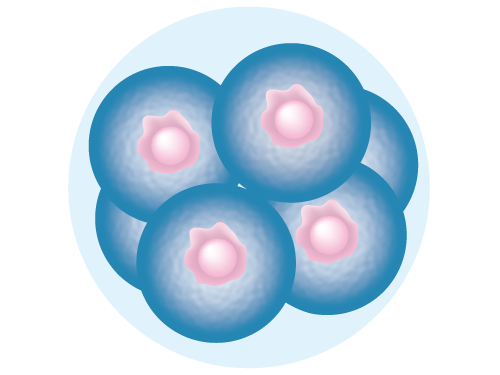Gene Editing of Embryos Gives Insight Into Basic Human Biology
By Marissa Fessenden,
Smithsonian.com [cites CGS' Marcy Darnovsky]
| 09. 21. 2017
A genetic tool allows researchers to disable a gene key to human development in a closely regulated experiment
For the first time, scientists edited a gene in fertilized human eggs critical to early development. The experiments helped the researchers learn about fundamental human biology in a way they could not through research on mice.
Researchers led by Kathy Niakan, a developmental biologist at the Francis Crick Institute in London, disabled a gene that codes for a protein called OCT4, known to be active in stem cells that can develop into all the cell types found in the body, reports Gretchen Vogel for Science. Turning the gene off ensured that cells from fertilized human eggs failed to form placental cells, yolk sac cells or even cells that would typically become a fetus.
Disabling the same gene in mouse embryos gives different results: Those embryos became balls of mostly placental cells. The findings suggest that the gene controls the fate of several cell lineages and plays a slightly different role in humans than in mice.
"This is opening up the possibility...
Related Articles
By Mike McIntire, The New York Times | 01.24.2026
Genetic researchers were seeking children for an ambitious, federally funded project to track brain development — a study that they told families could yield invaluable discoveries about DNA’s impact on behavior and disease.
They also promised that the children’s sensitive...
By Arthur Lazarus, MedPage Today | 01.23.2026
A growing body of contemporary research and reporting exposes how old ideas can find new life when repurposed within modern systems of medicine, technology, and public policy. Over the last decade, several trends have converged:
- The rise of polygenic scoring...
By Danny Finley, Bill of Health | 01.08.2026
The United States Food and Drug Administration (FDA) has a unique funding structure among federal scientific and health agencies. The industries it regulates fund nearly half of its budget. The agency charges companies a user fee for each application
...
By George Janes, BioNews | 01.12.2026
A heart attack patient has become the first person to be treated in a clinical trial of an experimental gene therapy, which aims to strengthen blood vessels after coronary bypass surgery.
Coronary artery bypass surgery is performed to treat...




